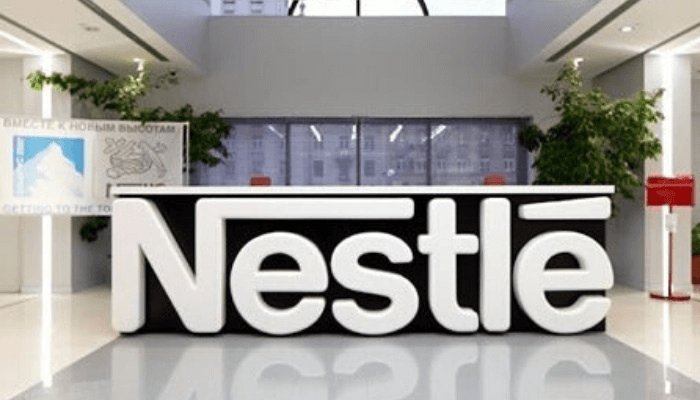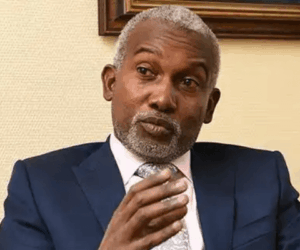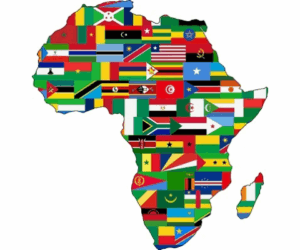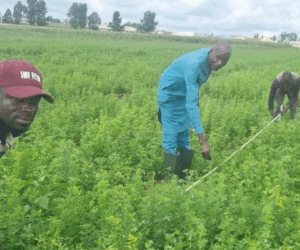Nestlé Nigeria has launched a national water quality advocacy campaign in response to alarming statistics showing that more than 113 million Nigerians lack access to safe drinking water.
The initiative, developed in collaboration with the Organised Private Sector in Water, Sanitation and Hygiene (OPS-WASH), aims to raise awareness and drive multi-sectoral action toward improving water safety across the country.
Unveiled in Abuja on Wednesday, the campaign underscores the growing concern over waterborne diseases, inadequate sanitation infrastructure, and their impact on public health and economic development.
The move comes as Nigeria continues to battle the consequences of contaminated water, with diarrheal diseases killing an estimated 87,000 children under five annually, according to data cited from Corporate Accountability and Public Participation Africa (CAPPA).
“Water quality is not just a technical or policy issue, it is about basic needs, human dignity and socio-economic sustainability,” Victoria Uwadoka, Corporate Communications and Sustainability Lead at Nestlé Nigeria said. “Only quality water is life—and unsafe water is a real enemy to health and wellbeing.”
The campaign rollout will leverage multiple platforms, including print, broadcast, digital media, and grassroots outreach. Nestlé says its aim is to equip households and communities with the knowledge and tools to protect their water sources and ensure safer hydration.
The initiative is based on the recognition that waterborne illnesses place a heavy burden on Nigeria’s underfunded health system, while also hampering productivity and education, with poor sanitation costing the economy an estimated ₦455 billion annually.
Olutayo Olatunji, Business Executive Officer for Nestlé Waters and Premium Beverages, emphasised the company’s long-standing commitment to water safety, citing the rigorous 13-step process behind its flagship bottled water brand, Nestlé Pure Life.
“Clean, quality water is the most essential nutrient, the cornerstone of health, and the basis of sustainable communities,” Olatunji stated. “Yet, it is often taken for granted until its absence or contamination threatens lives.”
He noted that the company is also on track to certify all of its water sites under the Alliance for Water Stewardship (AWS) Standard by 2025, a move that will reinforce responsible water management and environmental protection.
The federal government has endorsed the initiative, linking it with national efforts to meet Sustainable Development Goal 6 on clean water and sanitation.
Joseph Terlumun Utsev, minister of water resources and sanitation, called the campaign “truly transformative” given the country’s urgent water safety challenges.
“Every borehole tested, every river monitored, and every child protected from waterborne diseases is a victory we cannot afford to delay,” the minister who was represented by Elizabeth Ugoh, the ministry’s director of water quality control, noted.
Despite expanded infrastructure, government data shows persistent water contamination at the point of consumption in many regions. To combat this, the minister listed ongoing efforts, including nationwide quality monitoring programs, community safety plans, and updated regulatory frameworks.
He urged all stakeholders to “turn this advocacy into a movement of action—a call to invest, collaborate, and hold ourselves accountable for results,” affirming the ministry’s readiness to work hand-in-hand with Nestlé and partners to achieve measurable progress.
At the event, Nicholas Igwe, National Coordinator of OPS-WASH, said the campaign was historic, being the first of its kind led by private organisations in Nigeria.
“This is the first time in the history of Nigeria that we are having this type of campaign by private organisations,” he said, thanking Nestlé Nigeria for the milestone achievement.
Igwe detailed Nestlé’s pioneering work on water regeneration and stewardship in Agbara and Abaji, where the company has pledged to provide host communities with water volumes equal to their annual production—about 130 million liters for eight communities in Agbara and 270 million liters for 16 communities in Abaji.
Beyond supply, the initiative includes treatment plants to ensure water quality meets high standards, reflecting a holistic approach to water governance through partnerships with government and NGOs.
He stressed the critical importance of water quality, explaining that contaminated water is a major cause of diseases such as typhoid, cholera, dysentery, gastroenteritis, and respiratory illnesses linked to chemical contaminants.
Longer-term effects, he warned, include cancer, neurological damage, and reproductive issues, with children, pregnant women, and immunocompromised individuals especially vulnerable.
Poor water quality also exacts a steep economic toll by increasing healthcare costs, reducing productivity, and impacting agriculture through soil salinity and water scarcity.
“Every dollar invested in water and sanitation provides about seven dollars in economic returns,” Igwe said, citing benefits such as lower healthcare costs, improved productivity, and fewer premature deaths.
He also highlighted social consequences, including community displacement, damage to cultural heritage sites, and increased social inequality, as marginalised populations suffer disproportionately.
He stressed that the campaign’s focus on education and practical solutions is key, and announced a partnership with professional women engineers across Nigeria, who will help disseminate knowledge and guide communities on practical steps to manage water quality issues.









